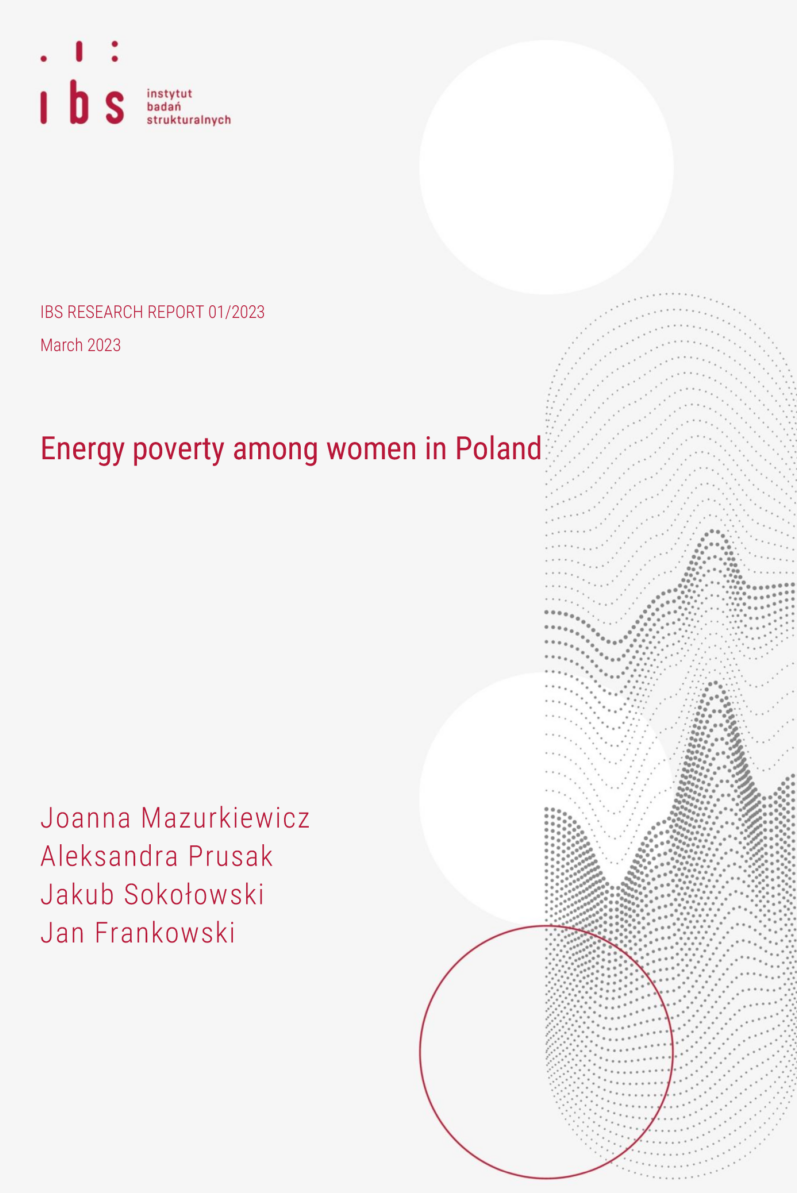Women who independently manage households constitute a social group particularly vulnerable to energy poverty. This vulnerability stems from several factors, including low-income levels associated with gender pay and pension gaps. Additionally, the increased risk of energy poverty is shaped by specific energy needs and traditional household roles often assigned to women, such as caregiving for children and elderly family members. Addressing energy poverty requires targeted measures to improve housing conditions: (1) pre-financing thermal modernization investments for low-income households, (2) supporting local governments in constructing and modernizing public housing, and (3) developing alternative housing solutions for individuals experiencing poverty crises.

This report was funded by the European Climate Foundation. The contents of this publication express the views of the authors and do not necessarily represent the position of the Institute for Structural Research. The usual disclaimers apply. All errors are our own.

